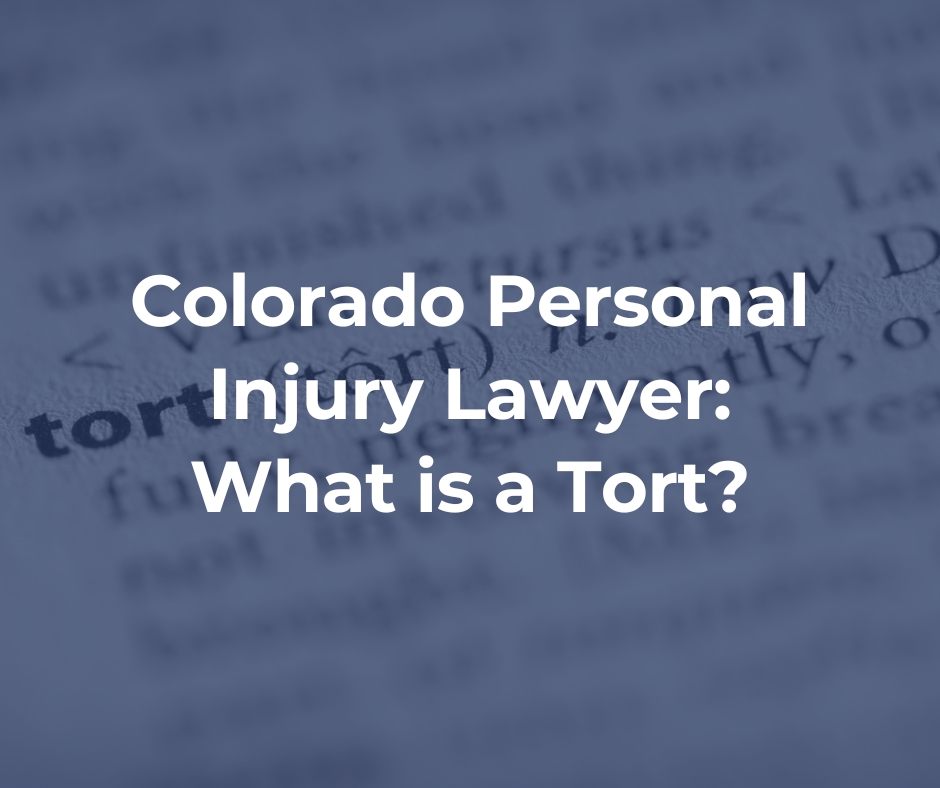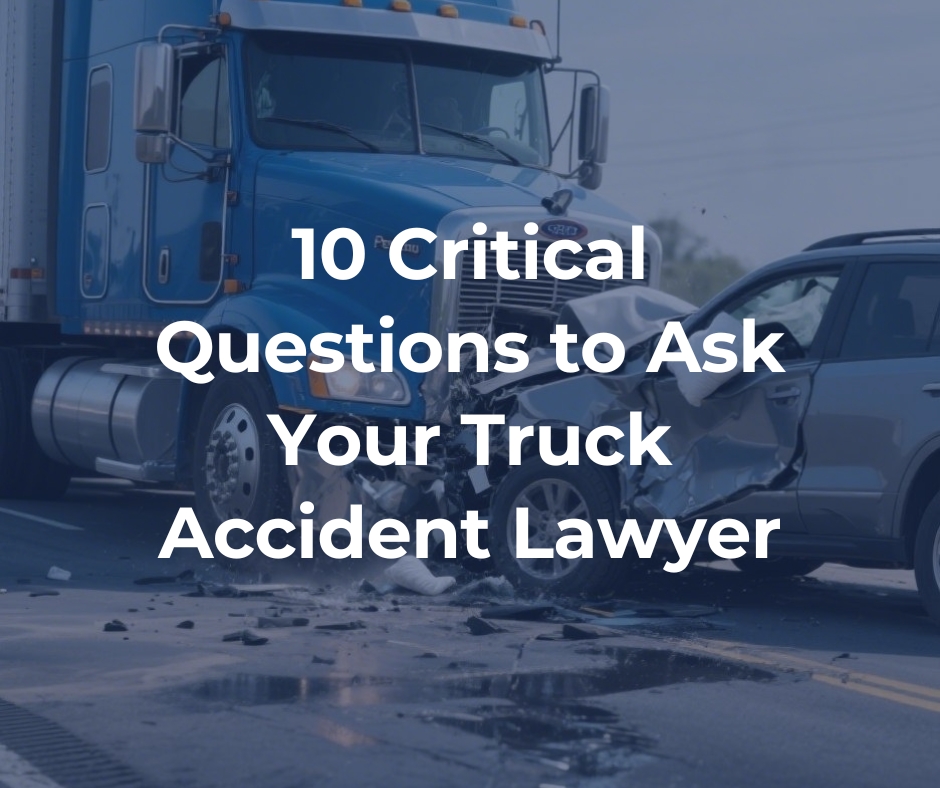
TL;DR: Key Takeaways
- A tort is a civil wrong where someone's negligent, reckless, or intentional actions cause harm, giving the injured party the right to seek compensation through civil lawsuits—focusing on justice and accountability rather than criminal punishment
- Three main types of torts exist: intentional torts (deliberate harm like assault or false imprisonment), negligent torts (failure to act with reasonable care, the most common type), and strict liability torts (liability without intent, such as defective products)
- Colorado uses modified comparative negligence rules—you can only recover damages if you're less than 50% at fault, with compensation reduced by your fault percentage (e.g., 20% fault on $100,000 = $80,000 recovery)
- Recoverable damages under tort law include medical expenses (past and future), lost wages, loss of earning capacity, property damage, pain and suffering, emotional distress, and punitive damages in cases of gross misconduct
- Successful tort claims must prove four elements: a legal duty existed, that duty was breached, the breach caused the injury, and damages resulted—stronger evidence increases chances of full compensation
- Common tort cases include car accidents, truck accidents, motorcycle accidents, product defects, and emotional distress claims—all situations where everyday events turn devastating due to someone else's actions
- Colorado personal injury cases have specific time limits: two years from the incident date for most personal injury claims, but three years for motor vehicle cases involving cars, trucks, and motorcycles
If you’ve ever been injured in an accident or suffered damages due to someone else’s actions, chances are tort law is involved. But what exactly is a tort? Why does it matter to your personal injury case? Let’s break it down into something practical and easy to understand—because when your future’s on the line, legal clarity matters.
What Is a Tort?
So, what’s the definition of a tort? A tort is a civil wrong. It happens when someone’s negligent, reckless, or intentional actions cause harm to another person. The injured party (the plaintiff) has the right to seek compensation through a civil lawsuit.

“It’s not just about getting compensated - it’s about holding someone accountable for what they did,” explains personal injury lawyer Phil Chupik of Metier Law Firm. That idea is at the heart of tort law, a core concept of personal injury cases in Colorado and the U.S.
Unlike criminal law, where the government prosecutes a wrongdoer for violating the law, tort law is about protecting individual rights. If someone rear-ends your car, causes an accident, or sells a dangerous product, you can sue them under tort law for personal injury damages. It’s about justice for you, not punishment for them.
Types of Tort Law
Tort law falls into three main categories, each tied to how the harm occurred:
Intentional Torts
This happens when someone deliberately causes harm. Examples include assault and battery, false imprisonment, or intentional infliction of emotional distress. Even if no physical injury occurs, if the intent to harm exists, the law may still apply.
Negligent Torts
Negligence is the most common type of tort. It means someone failed to act with reasonable care. A distracted driver, someone driving dangerously in poor weather conditions, or a company that fails to perform timely maintenance on a commercial truck can all be held responsible under negligent torts if someone suffered a personal injury as a result.
Strict Liability Torts
In strict liability cases, intent or carelessness doesn’t matter. If someone is hurt due to a defective product, the responsible party may be liable just because the risk existed. Product liability is one of the most recognized strict liability torts in the U.S.
Common Examples of Tort Cases
Tort claims often come from everyday situations that turn devastating. Here are some real-life examples:
- Car accidents
- Truck accidents
- Motorcycle accidents
- Product defects
- Emotional distress claims after being injured by someone else
And many others. In all of these, the law may entitle you to financial recovery through a tort claim.
Understanding Tort Law in Colorado
Colorado uses a modified comparative negligence system. This means you can recover damages in a personal injury case only if you were less than 50% at fault for the accident. If you were partly responsible, your compensation is reduced by your percentage of fault.
For example, if you’re awarded $100,000 in damages but found to be 20% at fault, your final compensation would be $80,000.
If you believe someone else's actions caused you harm, don’t guess about your legal rights. Call Metier Law Firm at 866-377-3800 or schedule your free consultation at www.metierlaw.com. We’re here to help you understand your case and what it may be worth.
What Damages Can You Recover Under Tort Law?
Tort law aims to restore what was lost and damaged to victims of personal injury - financially, physically, and emotionally. If you’ve been injured, you may be entitled to recover:

- Medical expenses (past and future)
- Lost wages
- Loss of earning capacity
- Property damage
- Pain and suffering
- Emotional distress
- Punitive damages (in cases of gross misconduct)
Punitive damages are not as common, but they send a strong message when the defendant’s behavior was especially reckless or malicious.
Who Can File a Tort Claim?
Anyone who has suffered harm or a personal injury due to someone else’s negligence or intentional act may qualify. But a successful tort claim must prove four elements:
- A legal duty existed
- That duty was breached
- The breach caused the injury
- Damages resulted
The stronger your evidence, the better your chance of securing full compensation.
What Isn’t Considered a Tort?
Not every legal wrong falls under tort law. Breach of contract, for instance, is governed by contract law, not torts. Criminal charges like theft or vandalism also aren’t torts—though some situations, like assault, may qualify under both.
Do You Need an Attorney If You’ve Suffered a Personal Injury?
Absolutely. Tort law for personal injuries can be complex, and your case may involve multiple layers of fault, insurance policies, or statutes like Colorado Revised Statute 13-21-111. A skilled Colorado personal injury lawyer can help you determine liability, calculate damages, and fight for the full settlement you deserve.
If you were injured in an accident, don’t wait. Call Metier Law Firm at 866-377-3800 or visit www.metierlaw.com to schedule your free consultation today.
Frequently Asked Questions About Tort Law
Q: What is the difference between a tort and a crime?
A: A tort is a civil wrong that allows the victim to recover compensation, while a crime is prosecuted by the government and may lead to jail or fines. Some acts—like assault—can fall into both categories.
Q: What’s the most common type of tort case?
A: Negligent torts are by far the most common. Car accidents, truck accidents, motorcycle accidents, and product liability cases all typically fall under this category.
Q: Can I sue for emotional distress?
A: Yes. Emotional distress is a recognized form of damage in both negligent and intentional torts, though it can be harder to prove than physical injury.
Q: How long do I have to file a tort claim for personal injury in Colorado?
A: In most personal injury cases in Colorado, you have two years from the date of the incident to file a tort claim. However, exceptions apply - you have three years for cases that involve cars, trucks, motorcycles and other motor vehicles. It’s best to speak with a personal injury attorney as soon as possible.
Q: What is a tortfeasor?
A: A tortfeasor is the person or entity that commits the tort—the one who caused the harm through their actions or negligence.
Call Metier Law Firm Today
Tort law is more than a textbook term. It’s the legal backbone that gives everyday people the power to fight back when someone else’s actions cause harm. If you’ve been hurt in Colorado, knowing your rights under tort law is the first step toward taking control of your future.
At Metier Law Firm, our team of Colorado personal injury lawyers are ready to fight for you and stand beside you through it all. Call us today at 866-377-3800 or schedule your free consultation with us at metierlaw.com.
Disclaimer: Past results discussed should not be considered a guarantee of your results as the factors of every case are individually unique.
This content is for informational purposes only and does not constitute legal advice. Consult a qualified attorney from Metier Law Firm regarding your individual situation for legal advice.
Tell Us About Your Case – Free Case Review with a Personal Injury Lawyer
(866) 377-3800Our Locations
.webp)
Do I have a Case?
How Much Should I Be Offered?
Do I Need an Attorney?
If these questions have crossed your mind, let us help. You may need a little direction or may not need an attorney at all, but you deserve to be confident knowing your options. We can provide you with information about our Attorneys of the West® accident investigations and legal services. Your confidential consultation with us is totally free.
Keep up with us!

.svg)



